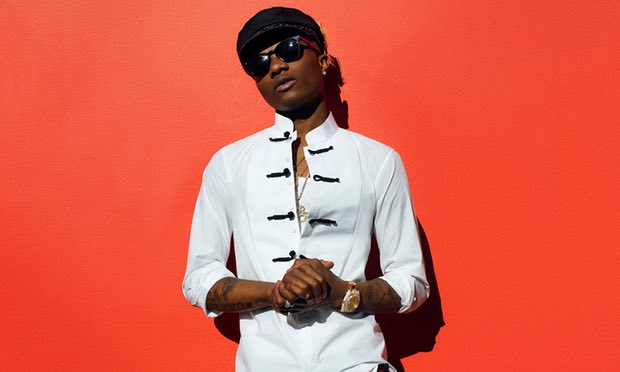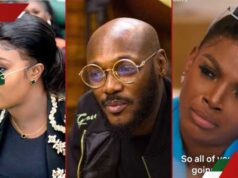 During the summer of 2012, one of the biggest UK chart hits was Oliver Twist, the feelgood pop and Afrobeat mashup that mirrored the lascivious desires of D’Banj, the energetic Nigerian singer then on the roster of Good Music, whose frontman Kanye West had a cameo appearance in the video.
During the summer of 2012, one of the biggest UK chart hits was Oliver Twist, the feelgood pop and Afrobeat mashup that mirrored the lascivious desires of D’Banj, the energetic Nigerian singer then on the roster of Good Music, whose frontman Kanye West had a cameo appearance in the video.
This summer, it’s another Nigerian singer, Wizkid, whose name is a fixture all over the charts.
With two songs – the groovy reggaeton hit Daddy Yo and a collaboration with the Canadian rapper Drake on Come Closer – on the Billboard and UK charts alongside Drake’s One Dance (the 2016 summer anthem), which he lends his vocals to, and Tinie Tempah’s Caribbean-influenced Mamacita, which he elevates with a well-delivered hook, it’s officially Wizkid season. All of this has culminated in a staggering seven nominations at the 2017 Billboard Music Awards tonight even as he prepares to join a star-studded cast at the UK Wireless Festival in London this summer.
Ayodeji Ibrahim – Wizkid – began singing at the age of 11 in the church choir. A few years later, he formed a boy band, SI, while running errands in the studio where musicians 2face Idibia and Jazzman Olofin recorded circa 2004.
When his debut album, 2011’s Superstar, was released three years after he secured his first record deal, it broke industry records and the launch was well attended by the cream of the music business. It reinforced what many had suspected from the singles since he was first introduced to the listening public; the innocent-faced kid had a knack for cooing catchy hooks and plastering greatness on guest features.
“From when his very first single was released, he has always had a je ne sais quoi”, says Ayodeji Rotinwa, pop culture writer for ThisDay, one of Nigeria’s most read dailies, and Forbes Africa. “I think he has been smart in branding himself early as a collaborator rather than coming to shake up things on the international scene right away.”
Aided by a solid label and management, Wizkid got into bed with top-notch producers, fellow artists and promoters across Africa and the UK, stacking up collaborations, playing at gigs and morphing into a continental sweetheart.
“Apart from being talented, he’s a charming young man, and whether you admit it or not being charming helps,” says Gbemi Olateru-Olagbeji, from Beat 99.9 FM, a Lagos radio station.
“He started his networking a long time ago. In 2012, Chris Brown came to Lagos for a performance. At some point during the show, Wizkid was on stage with him and even danced with him. A few months later, he was hanging out with Brown in Los Angeles. This was before he releasedOjuelegba. He didn’t let that chance meeting end at a few words, a handshake and a selfie. It went beyond that and became a friendship. I’m not saying Brown gave him his big break but he’s definitely part of the story. He continued to meet people, make contacts and the rest is history. Talent is not enough.”
But the turning point was undoubtedly Ojuelegba – a mid tempo ode to the Lagos slum where he grew up – off his second album, Ayo, listed in Rolling Stone’s 15 great albums you didn’t hear in 2014. Nigerian-British rapper Skepta set the ball in motion – then passed it on to Drake – for the heavy-hitting remix that went viral past Africa, Europe and into many households in the US, including that of Swizz Beatz and Alicia Keys. Neither rifts with his old label nor a thinly veiled head-to-head battle with archrival Davido, in a mirroring of the Cristiano Ronaldo-Lionel Messi phenomenon, have marred his steady rise. Instead, he is the latest bride of music giants Sony Music/RCA.
“He’s always had the drive and thoughts of global recognition,” says rapper Willybang, a childhood friend who previously went by the moniker Silly. The second half of SI, he was namechecked on Ojuelegba (Me and Silly, from Mo’Dogg’s studio, we been hustle to work … ). “He was like Brain in Pinky and the Brain, always wanting to take over the world.
“Then it was only older musicians like Brenda Fassie and Miriam Makeba were recognised outside Africa, except for people like 2face, who was young and inspired us. Together we would patiently watch these legends record; it was after three or four years of doing this that we got a chance to record for the first time,” says Willybang.
“At one point, his parents didn’t want to see me around his house because they thought I was a bad influence on him, making him hang around studios. We had no money but we had the drive. Even later, at Mo’Dogg studio, we would have to tilt the generator sometimes to completely use the last of the petrol.”
These days, Wizkid is the poster boy for a new school of artists fashioning their own sounds from the continent inside out and embarking on a journey into genre obfuscation including Tiwa Savage (signed to Roc Nation) Sony Music’s Davido, Mr Eazi, Maleek Berry, Tekno and Burna Boy; Ghana’s R2Bees and Sarkodie; Kenyan boy band Sauti Sol; Cassper Nyovest, Nasty C, AKA – all from South Africa – and the DRC’s Fally Ipupa. Christened Afrobeats (and disliked by musicheads because of its divergence from Fela Kuti’s socially conscious Afrobeat) by the UK-based Ghanaian DJ Abrantee, it is an umbrella for contemporary African sounds that has welcomed influences from house, dancehall, jazz, pop, R&B and highlife.
“I think Wizkid gives other African artists visibility just by being present. He has the world as his audience now,” says Rotinwa.
D’Banj’s arrival on the global scene led to his split with his longtime collaborator and business partner, the revered producer Don Jazzy, and an eventual flop, which explains why Nigerians are waiting with bated breath for the unfolding trajectory of their next homegrown superstar. Wizkid has only two albums to his credit and no single mixtape – and his new music has been seen on the home front as more Caribbean than Nigerian.
Mr Eazi, one of the artists Wizkid has signed up to his Starboy Entertainment imprint and the continent’s breakout star in 2016, is optimistic. “Wizkid is one of the most talented artists ever out of Africa, he is blessed with the melodies, but most of all he works hard. His work rate even pushes me to go harder.
“I believe Sony is taking his project as priority and Wizzy is not leaving his destiny in the hands of others. His ability to blend into whatever genre yet still keep his signature feel might be his strongest suit.
“With someone like Wiz representing Africa, it will invariably lead people to check out other African music – and that’s a positive for new acts,” adds Eazi.
“Who knows? We might be the next [viral genre] like reggae, especially with a lot of pop stars sampling different elements in our music.”
Olagbegi agrees: “The international record labels are paying more attention to African artistes now. They’ve been sending representatives to Lagos, having meetings and signing deals.”
THE WIZKID CV
Family Grew up with 12 sisters. Born to a Pentecostal Christian and a practising Muslim father.
Hometown Lagos, Nigeria.
Started singing and recording at age 11 with church friends.
Gained attention as a solo artist following the release of his single, Holla At Your Boy, which appeared on his debut studio album, Superstar (2011). Released his second album, Ayo, in 2014.
Achieved global prominence in 2016 when he collaborated with Drake on One Dance, which reached number one in 15 countries. His latest single, Come Closer, features Drake.
Fan base “Nigeria’s Justin Bieber”, he was the first Nigerian musician to have over a million followers on Twitter.
Courtesy: GUARDIAN








Nice one wizzy boy.